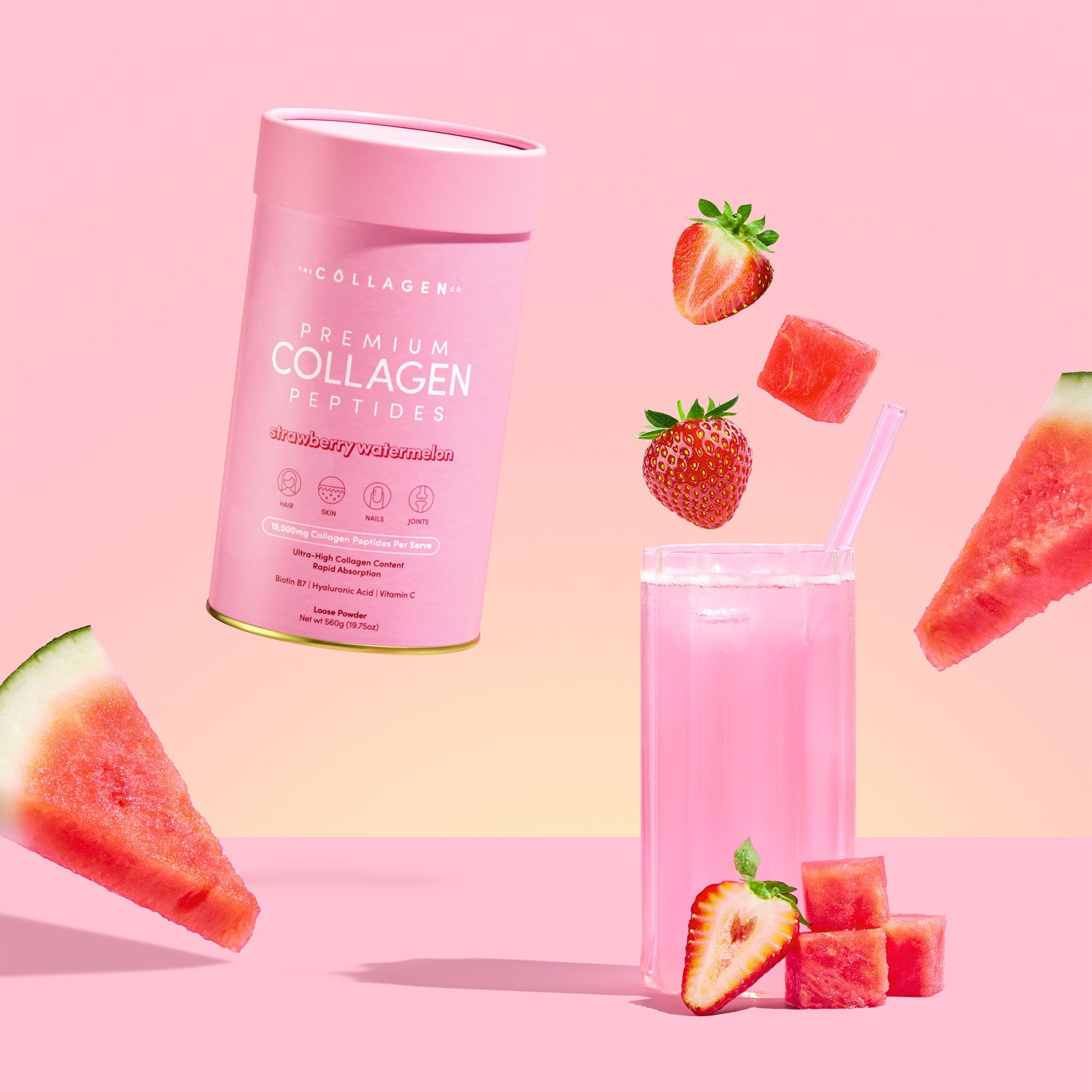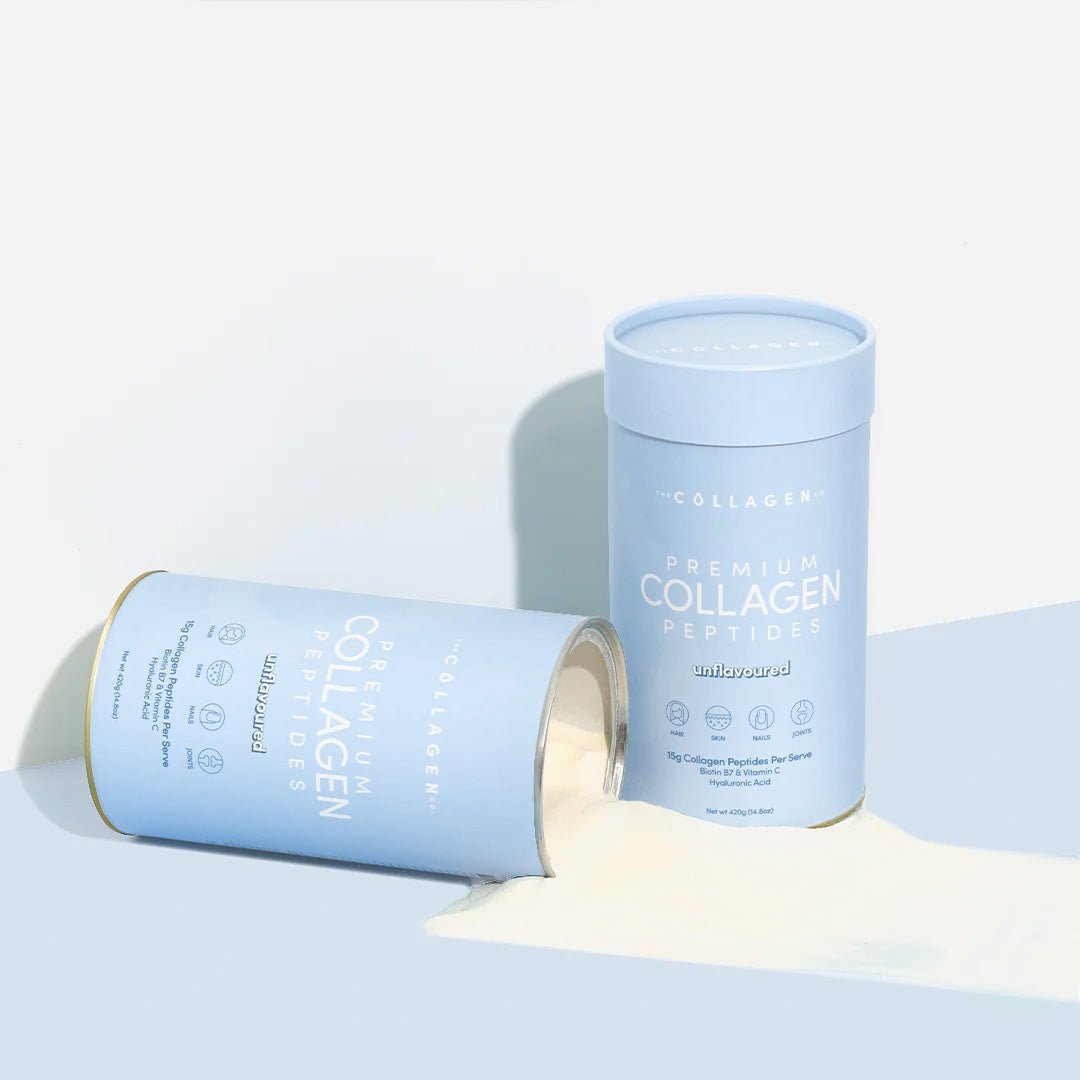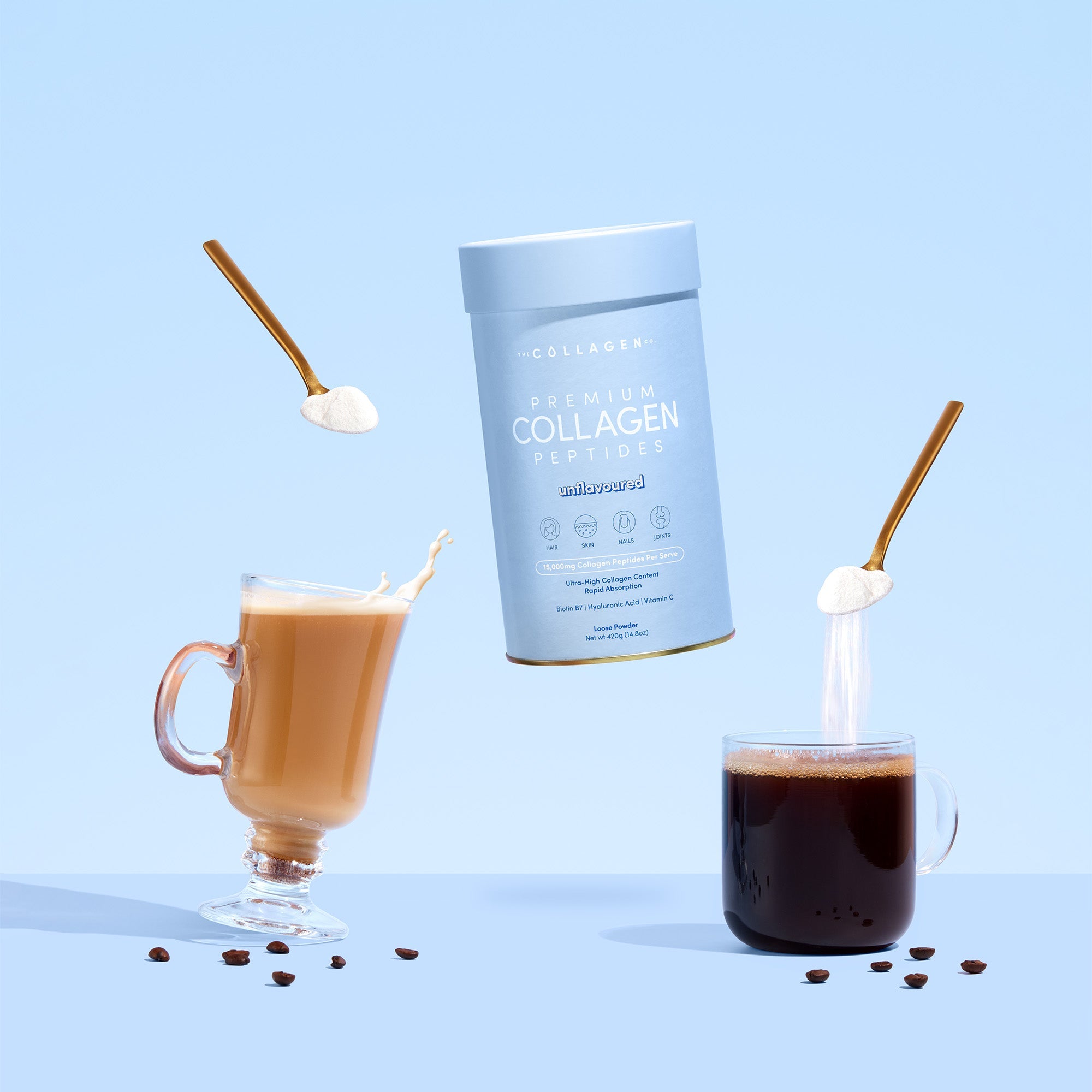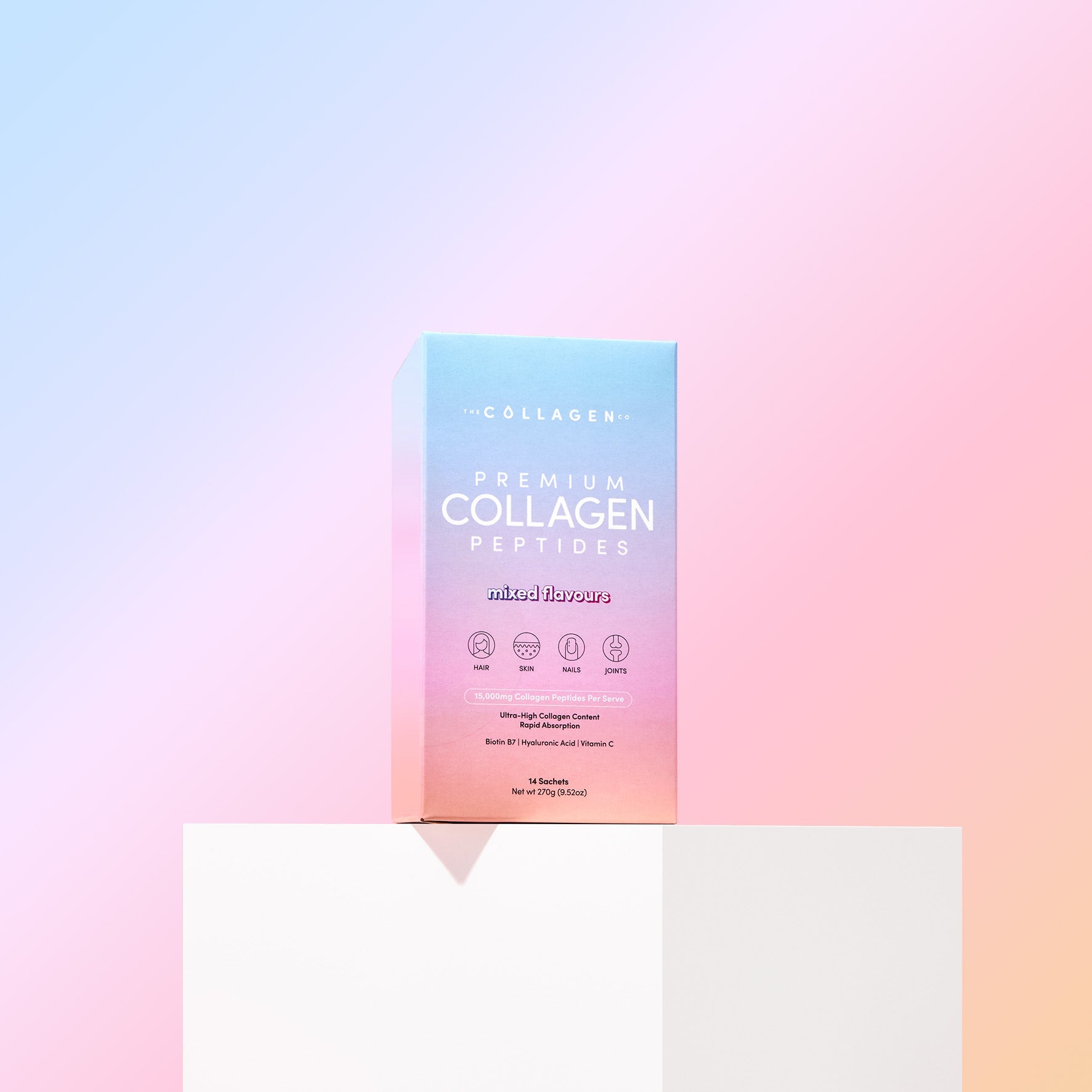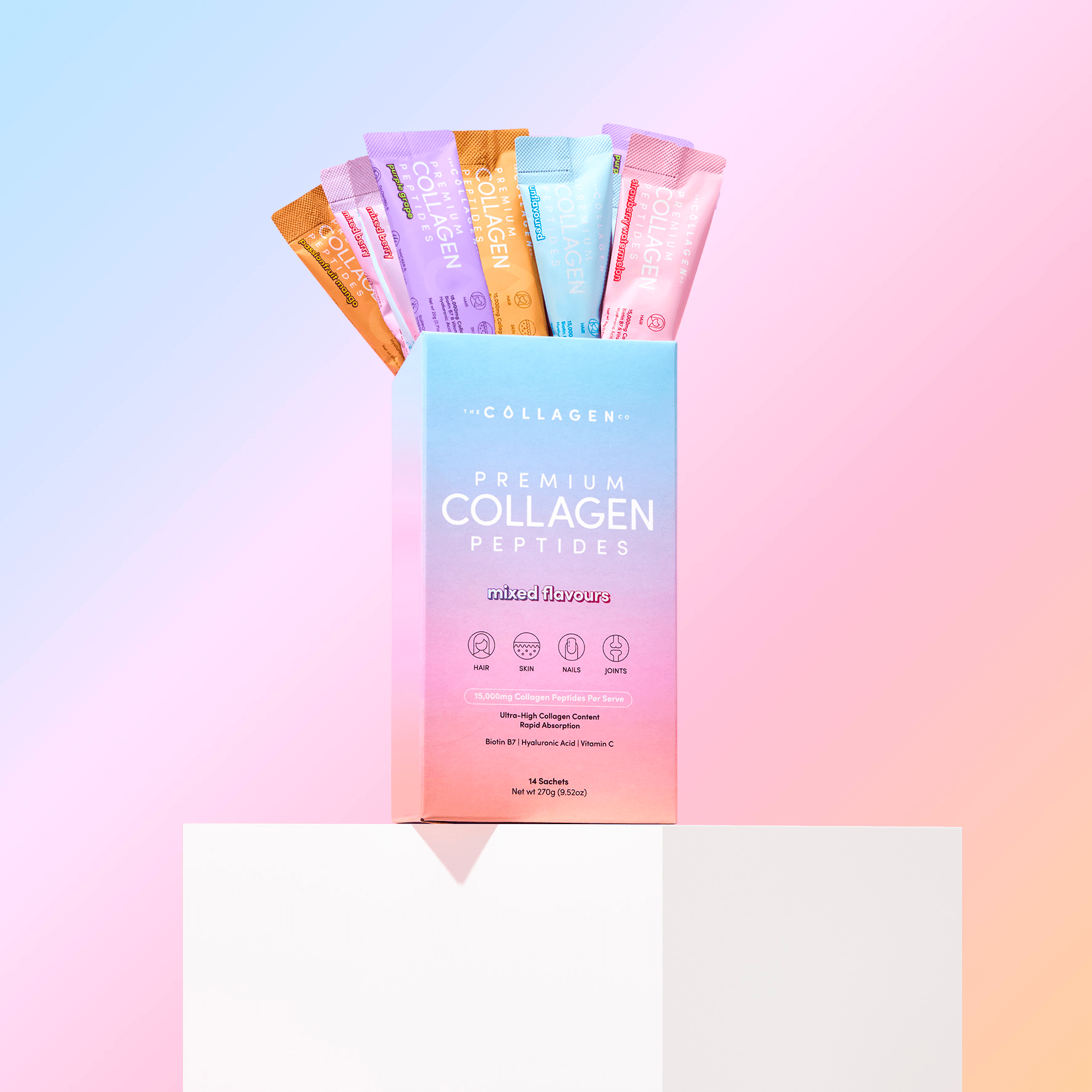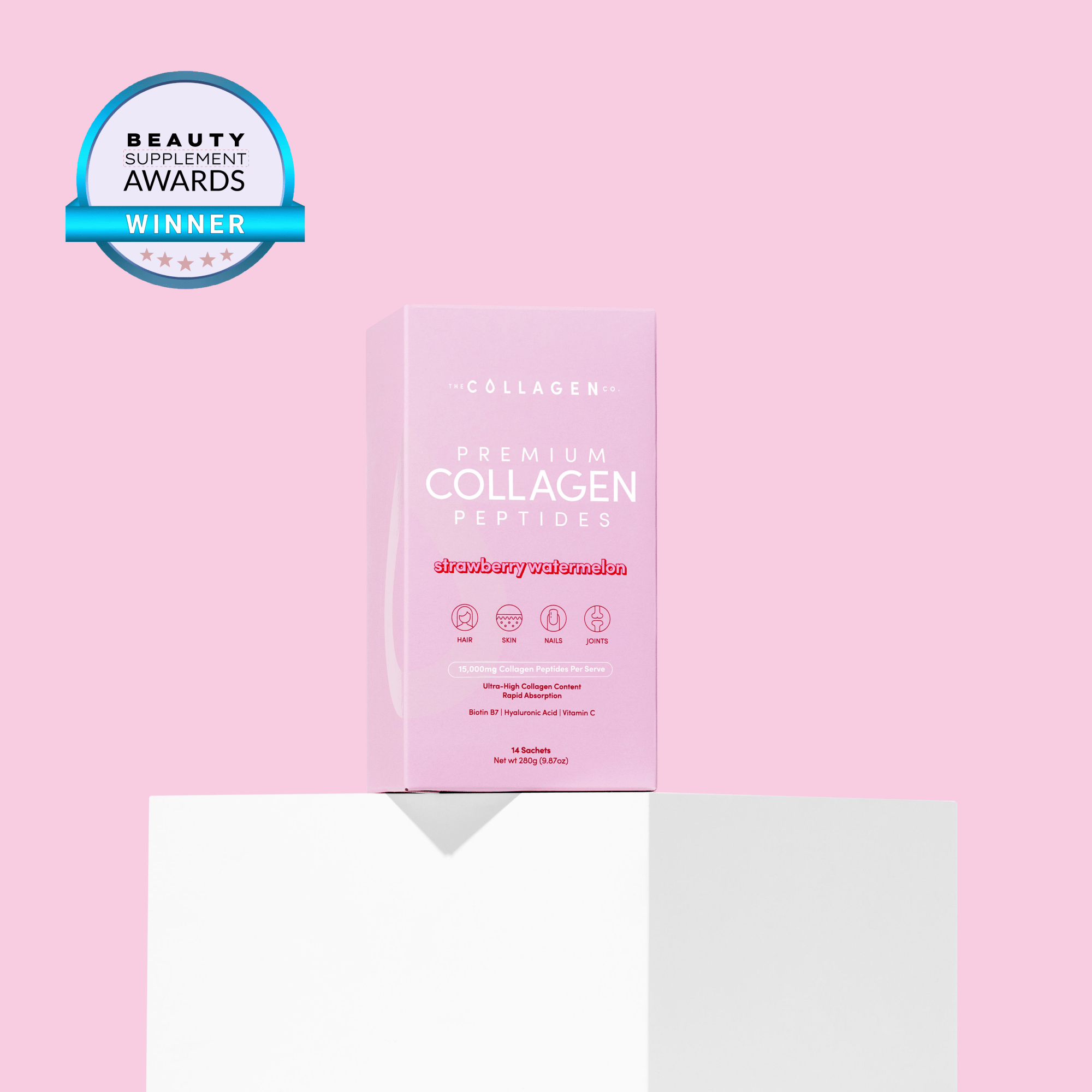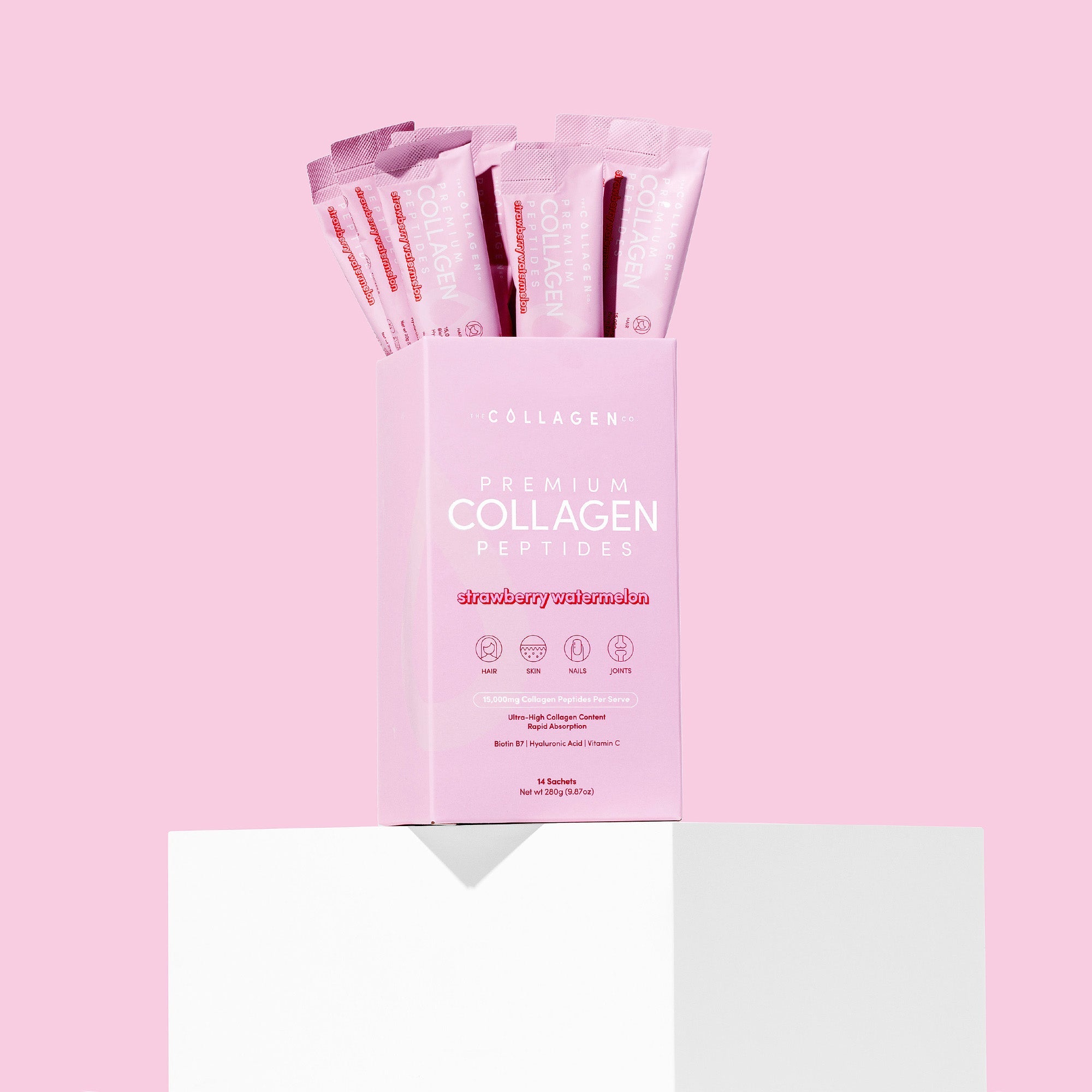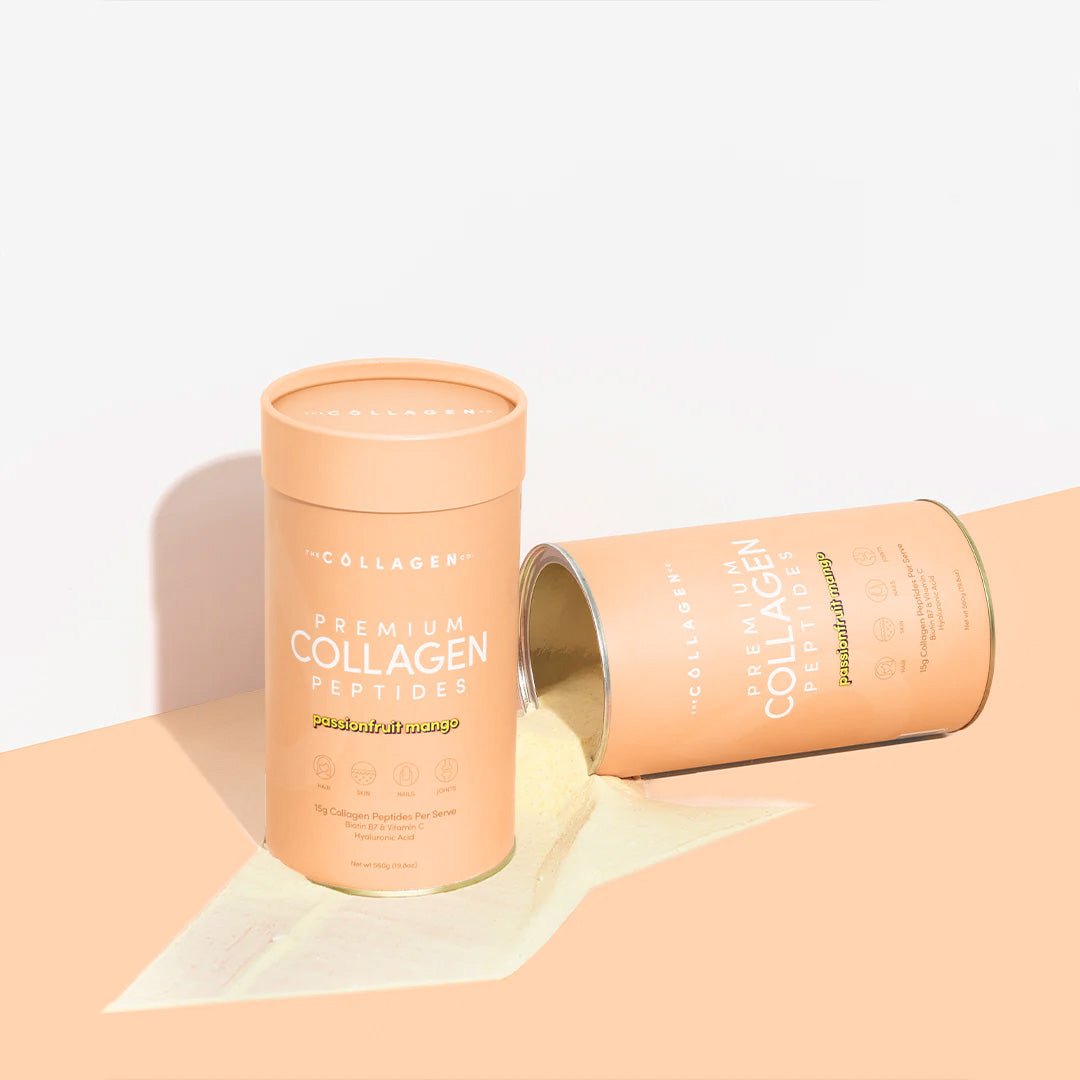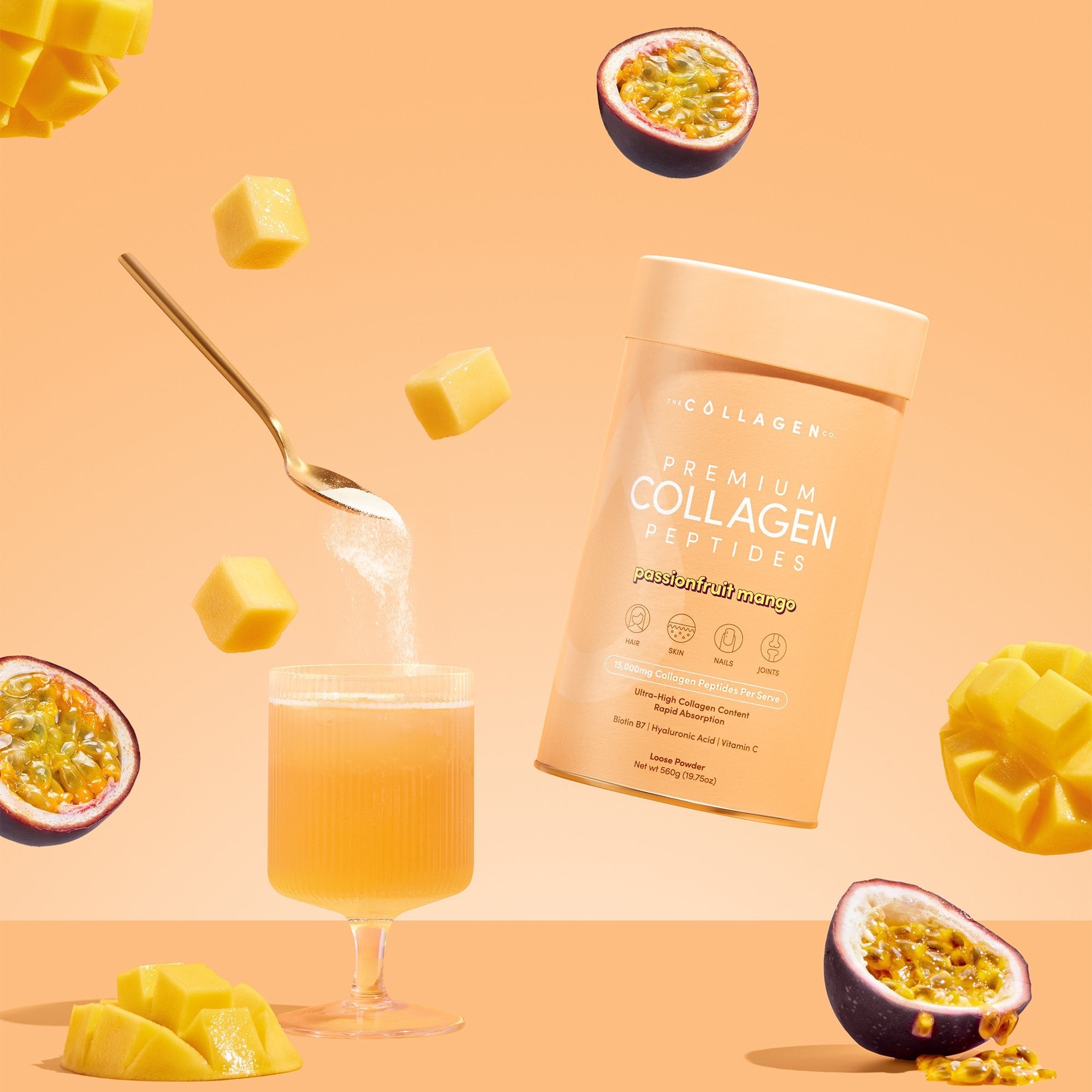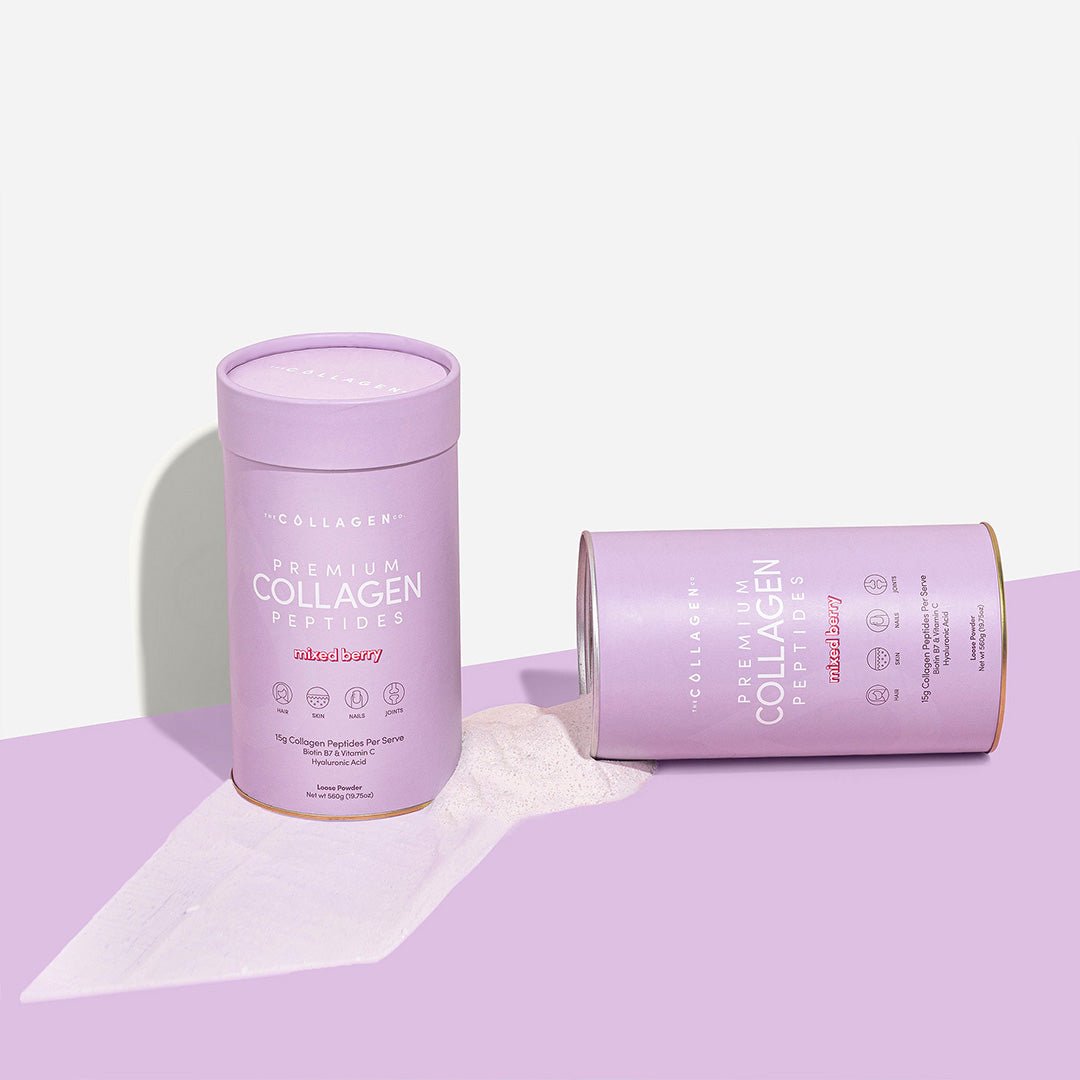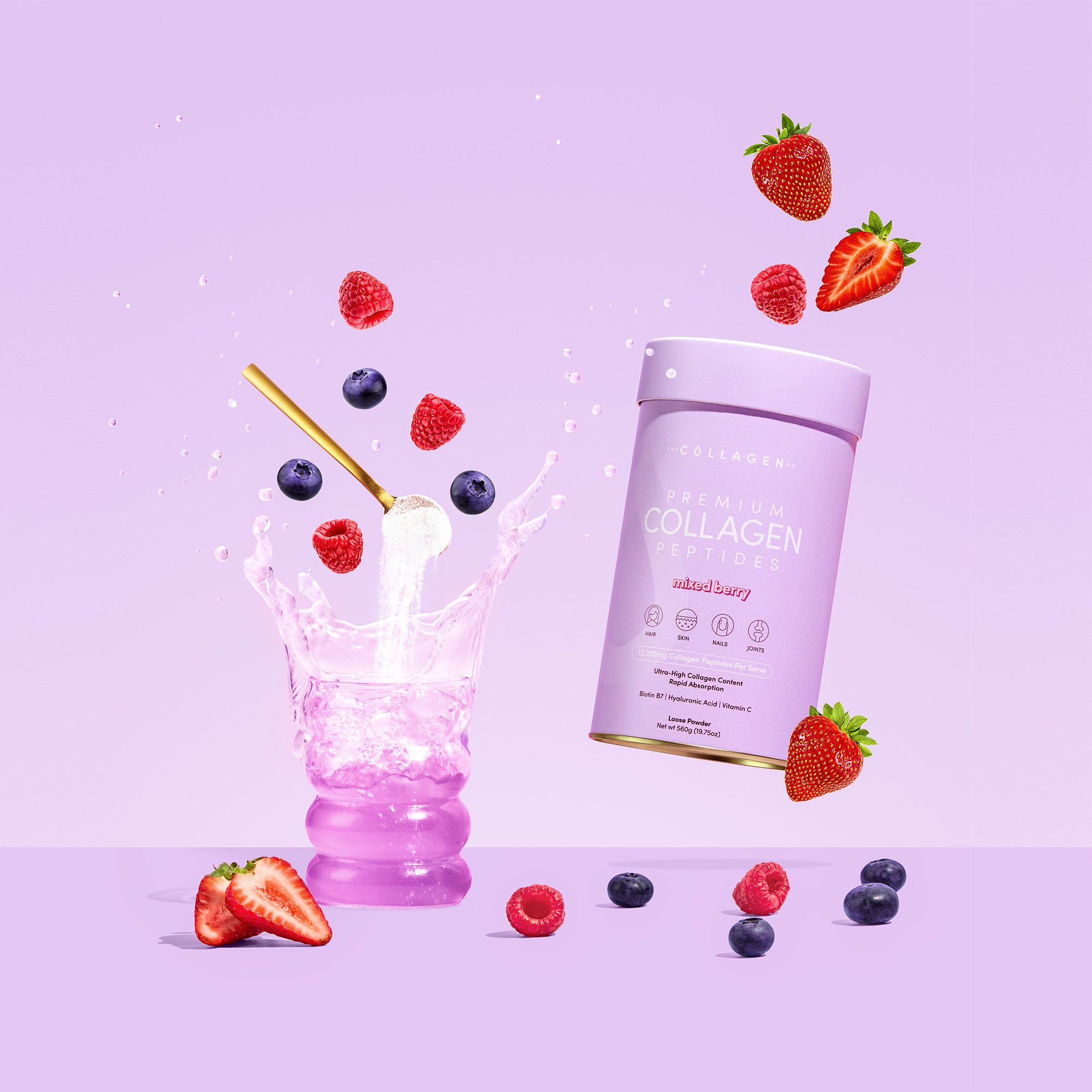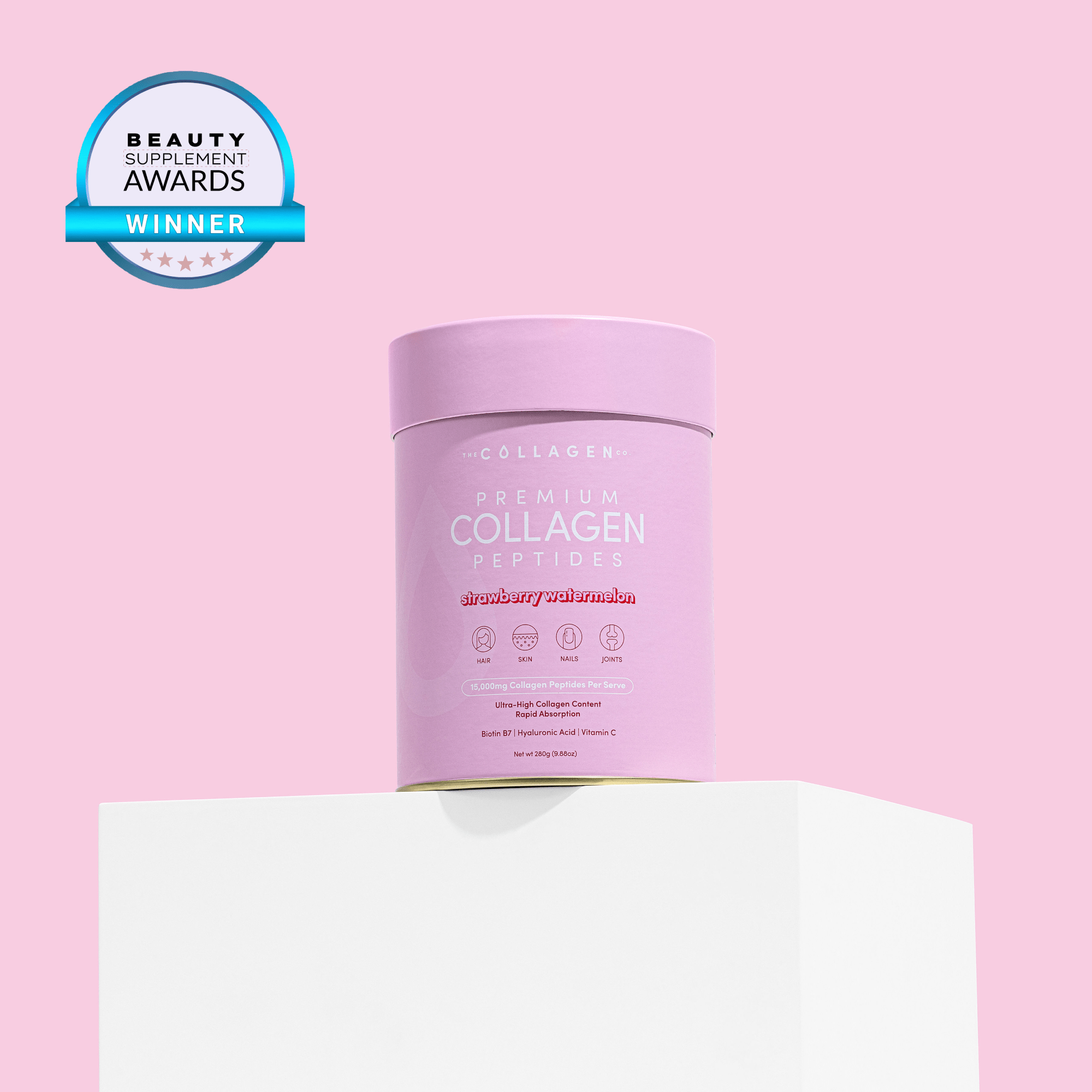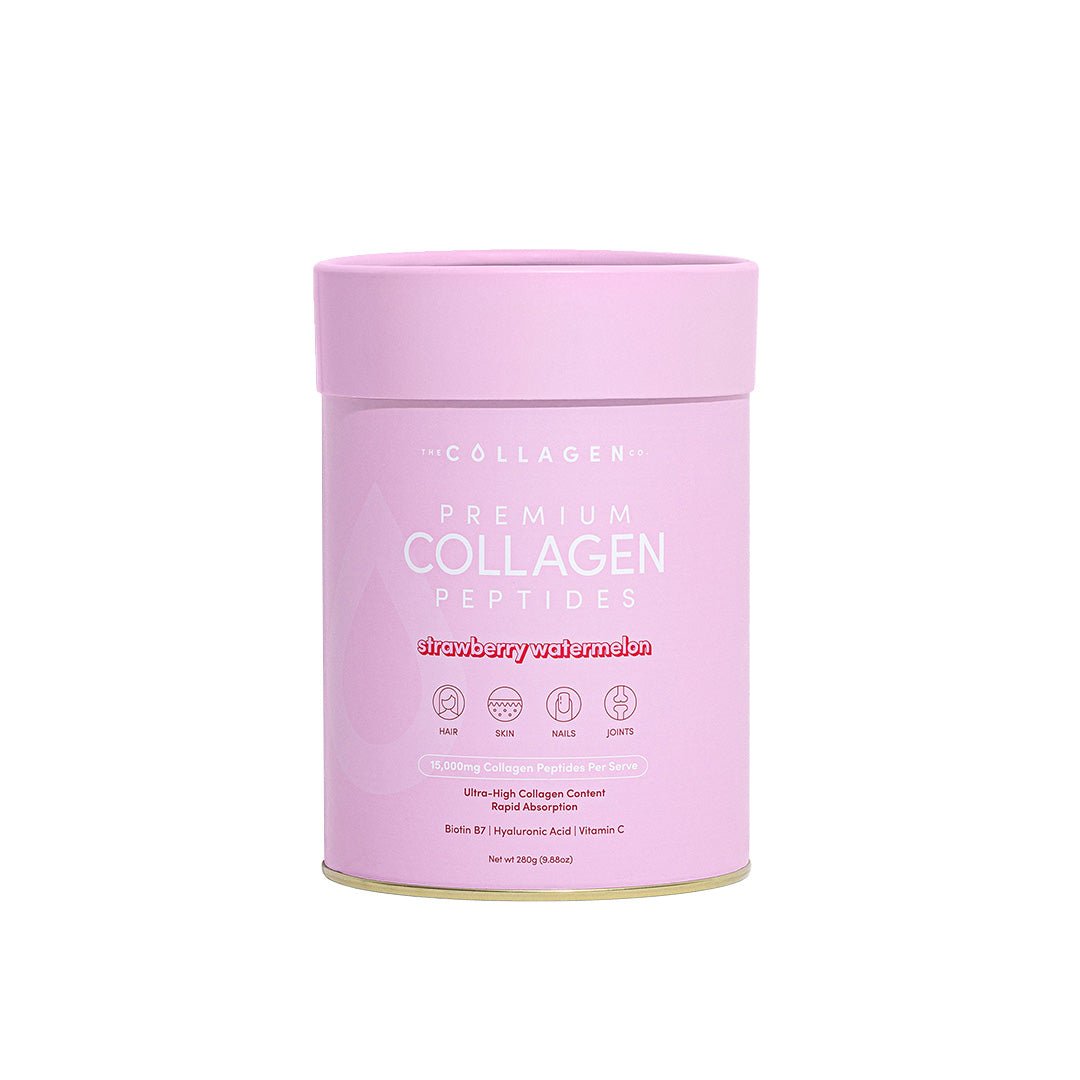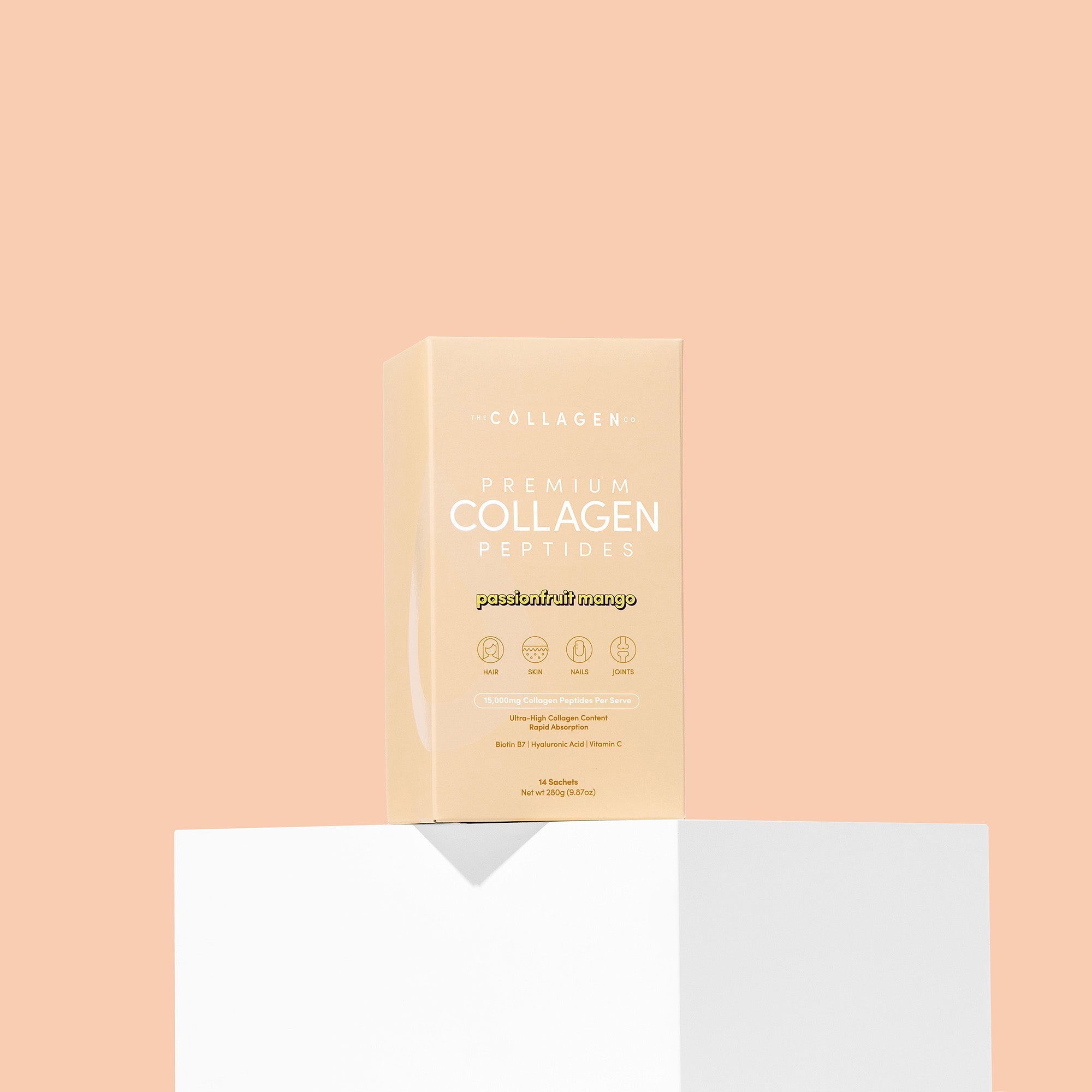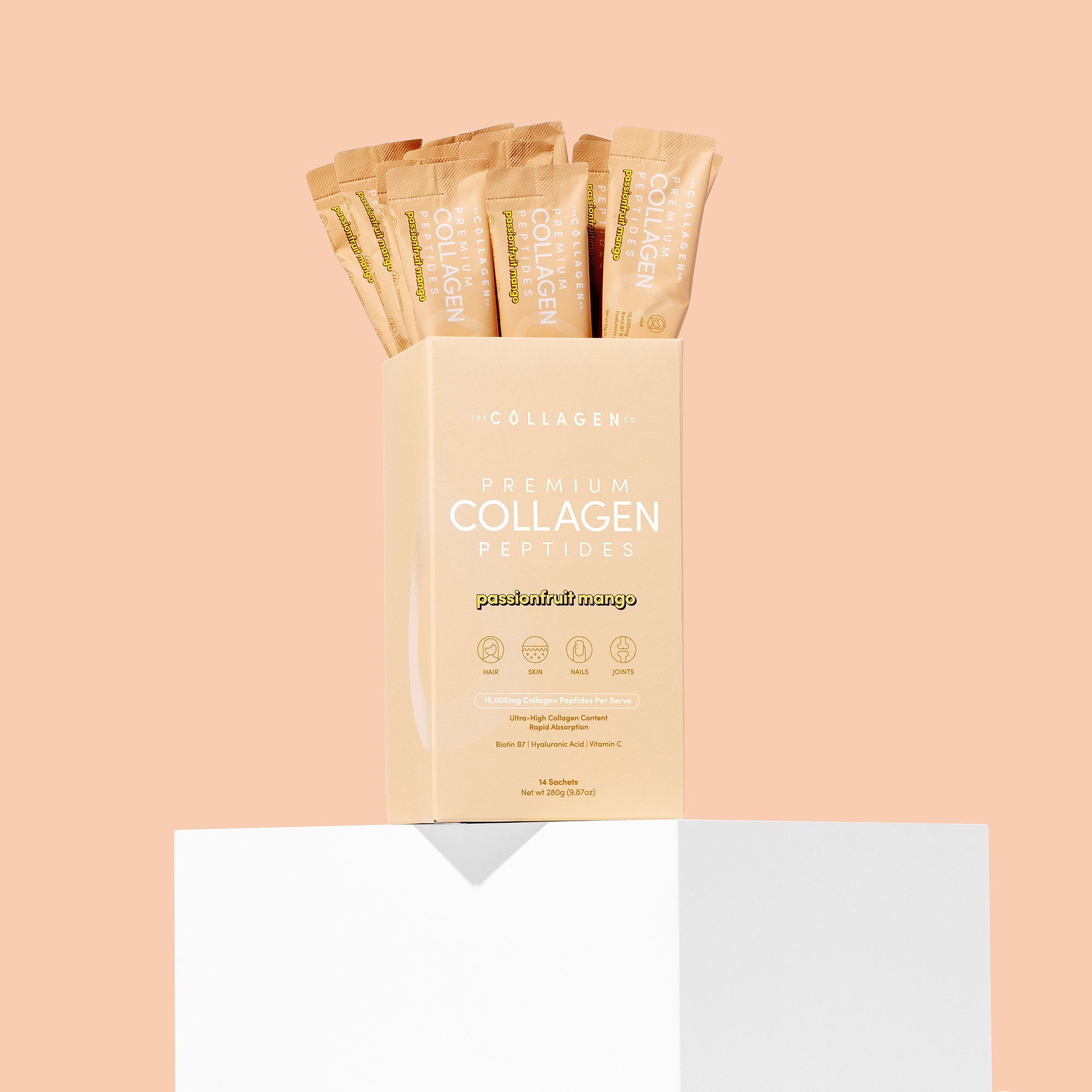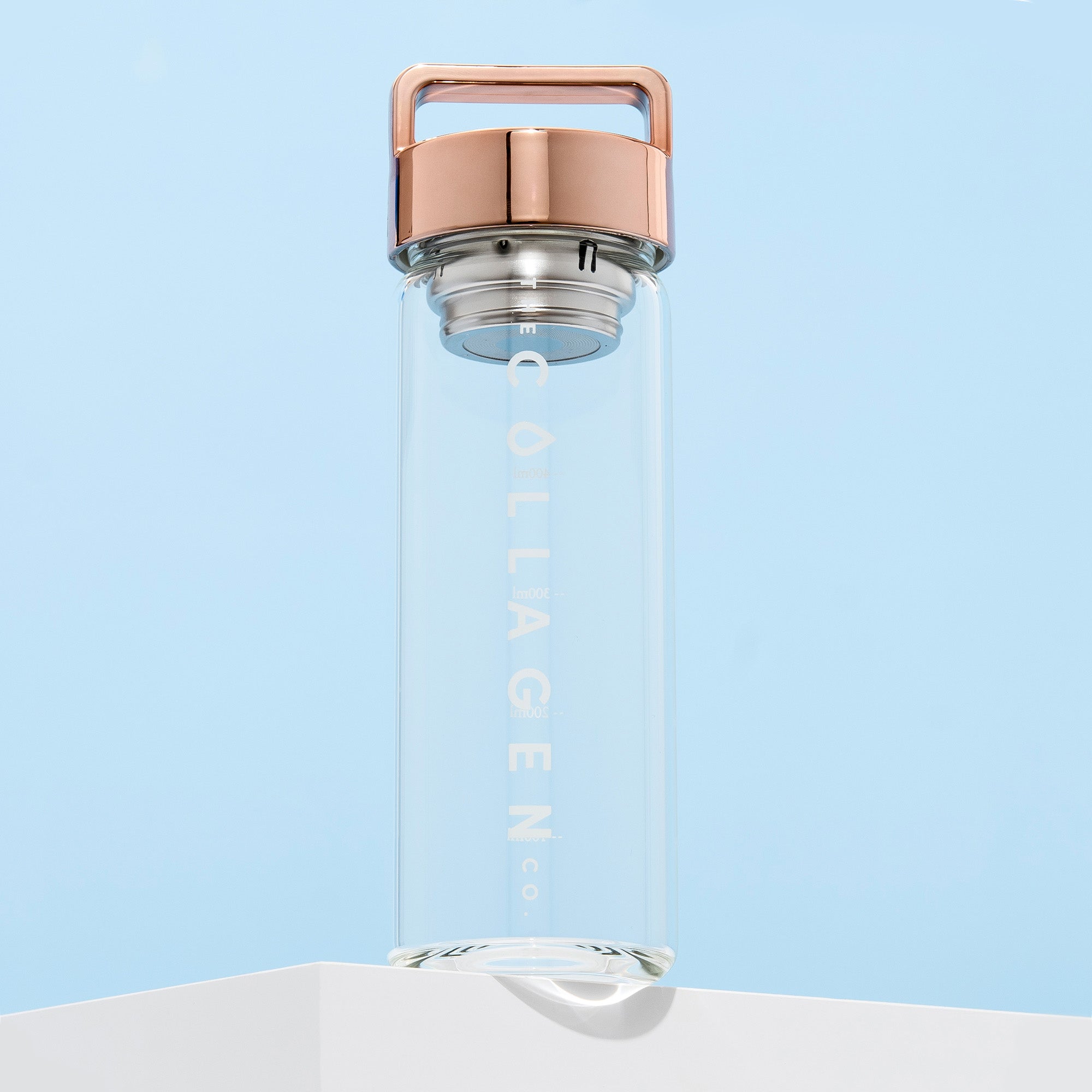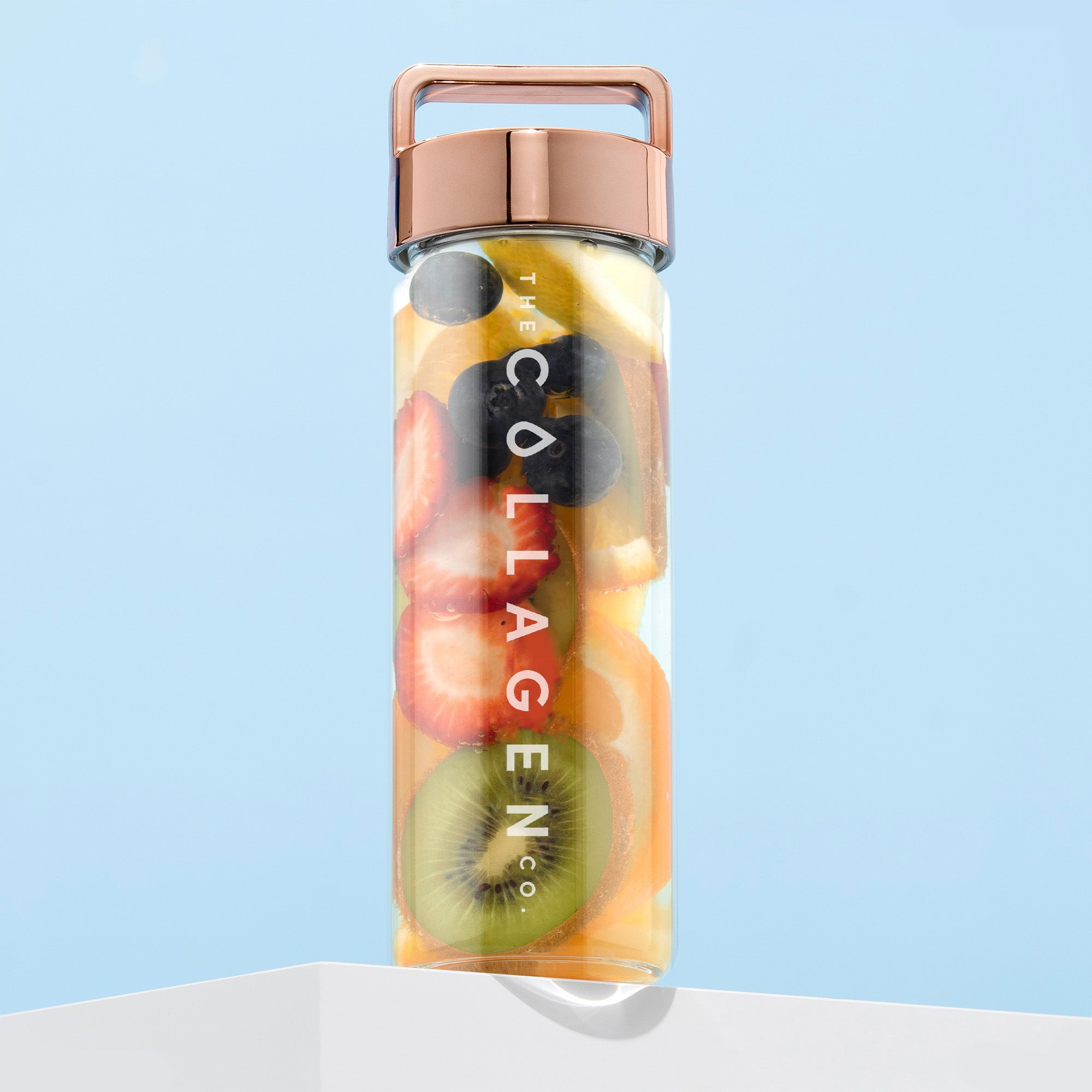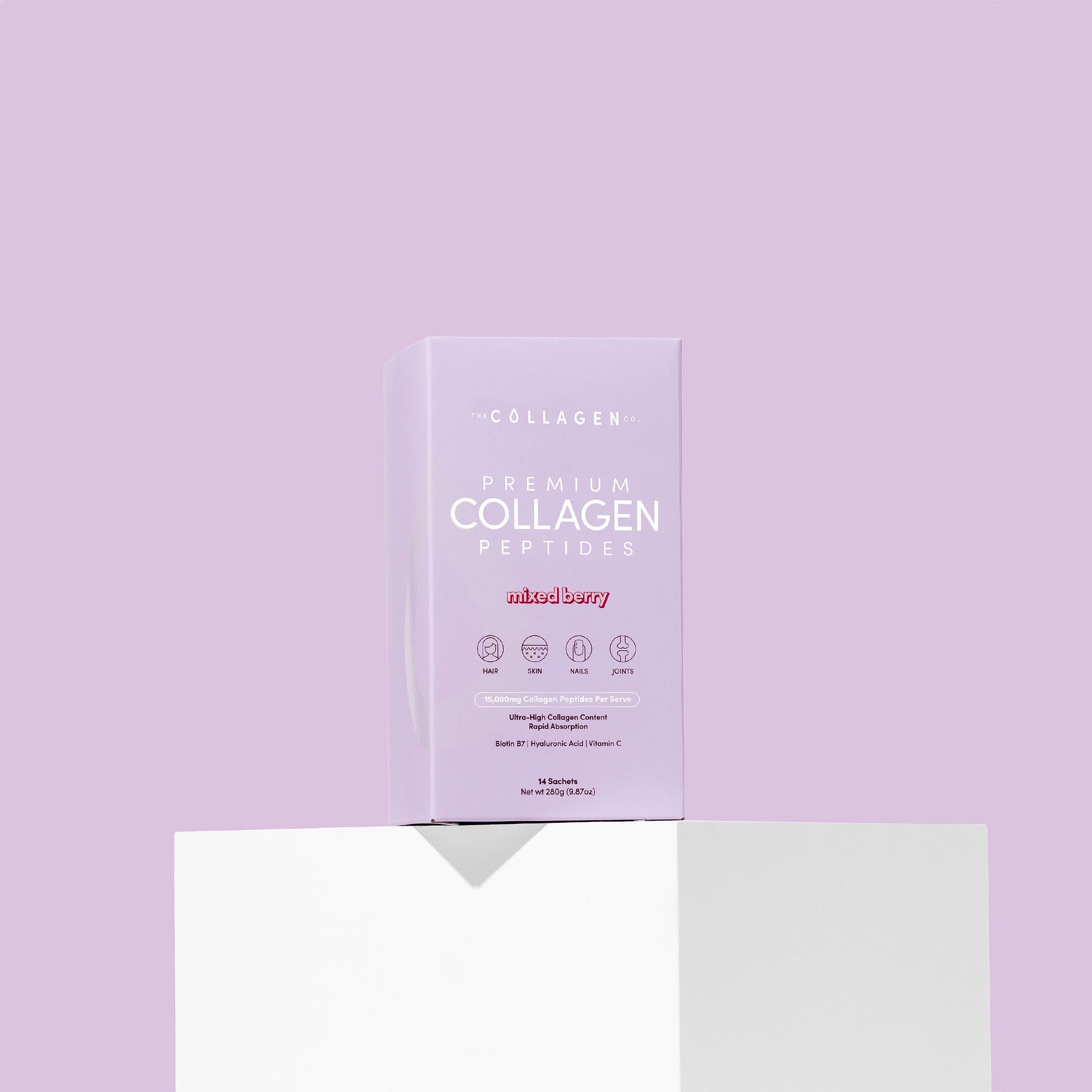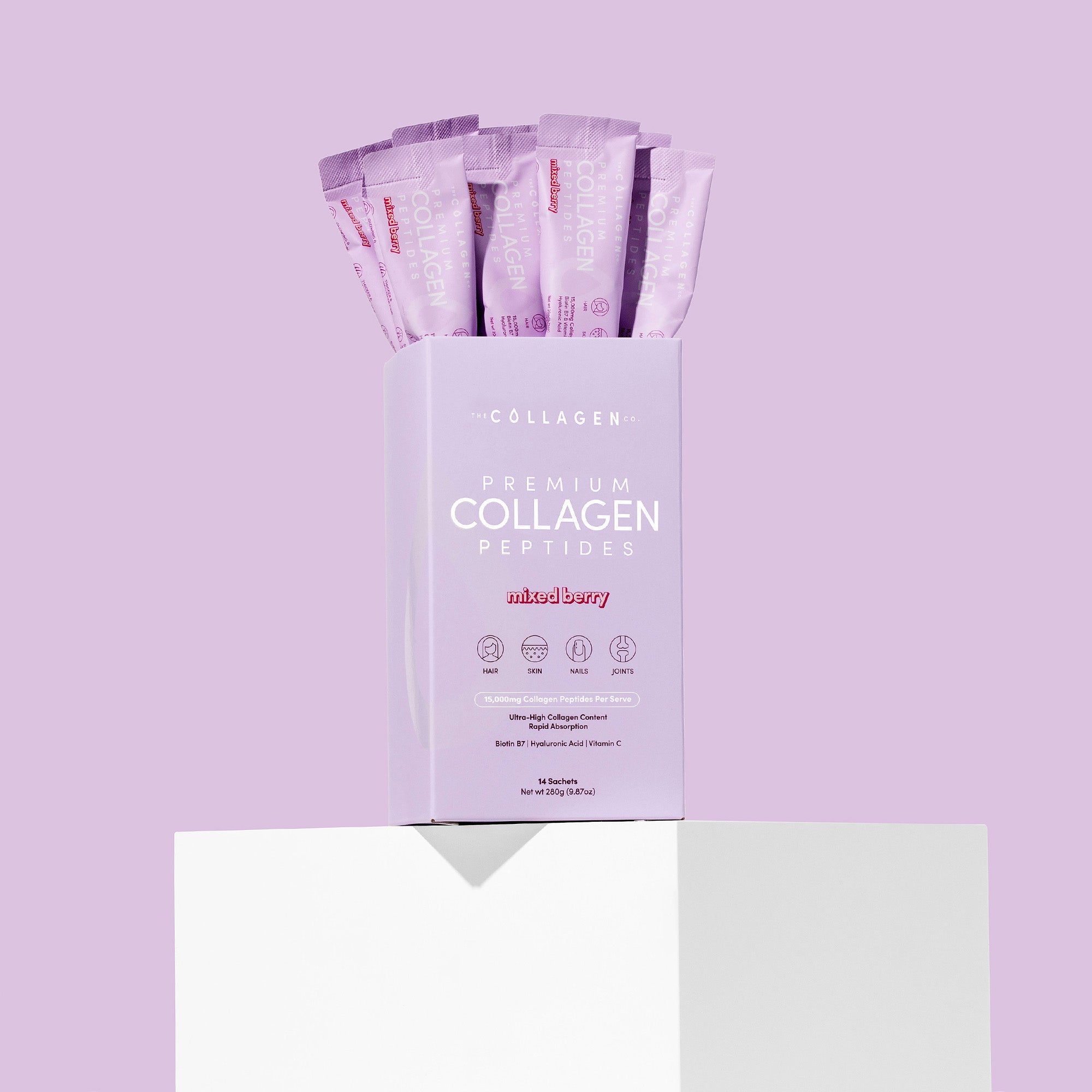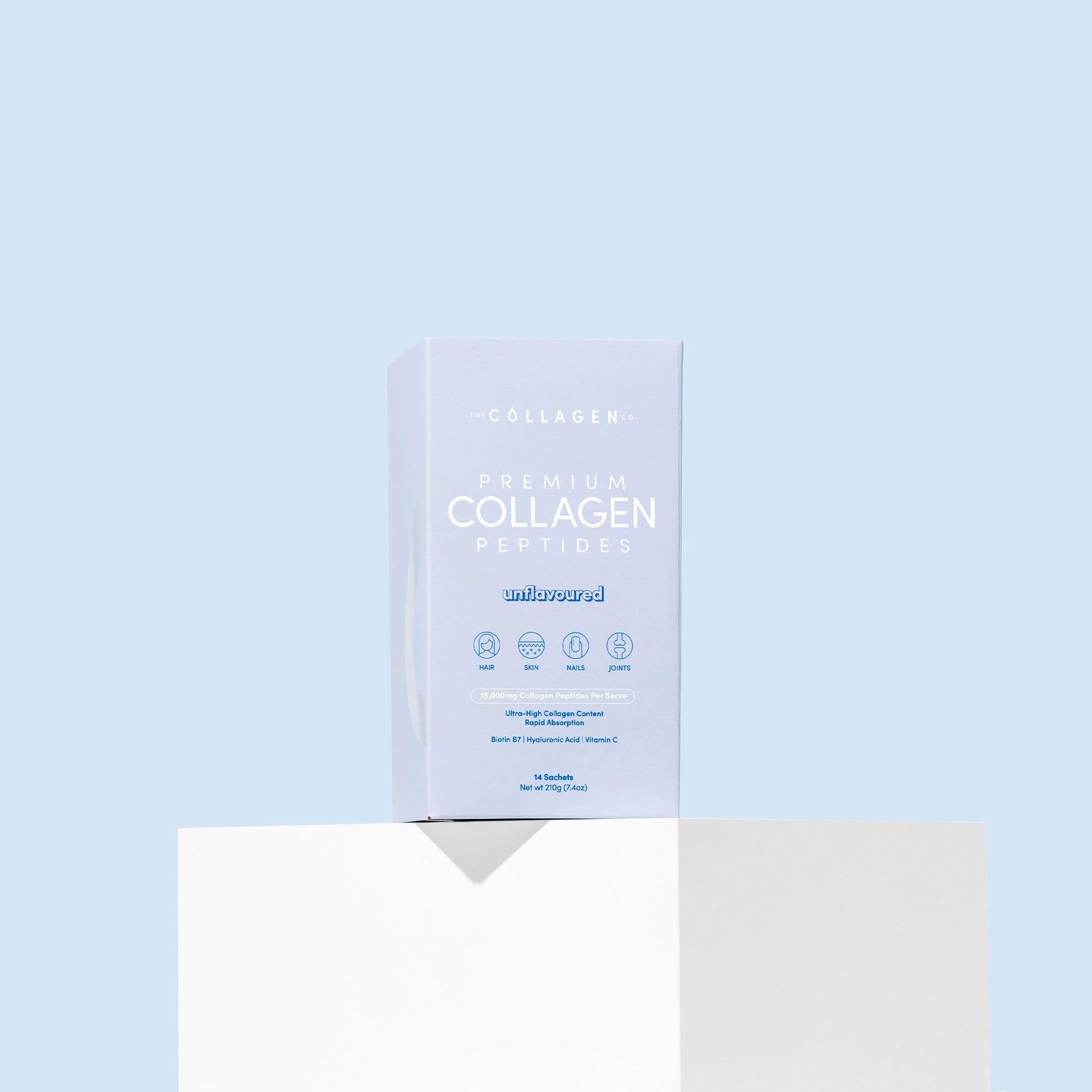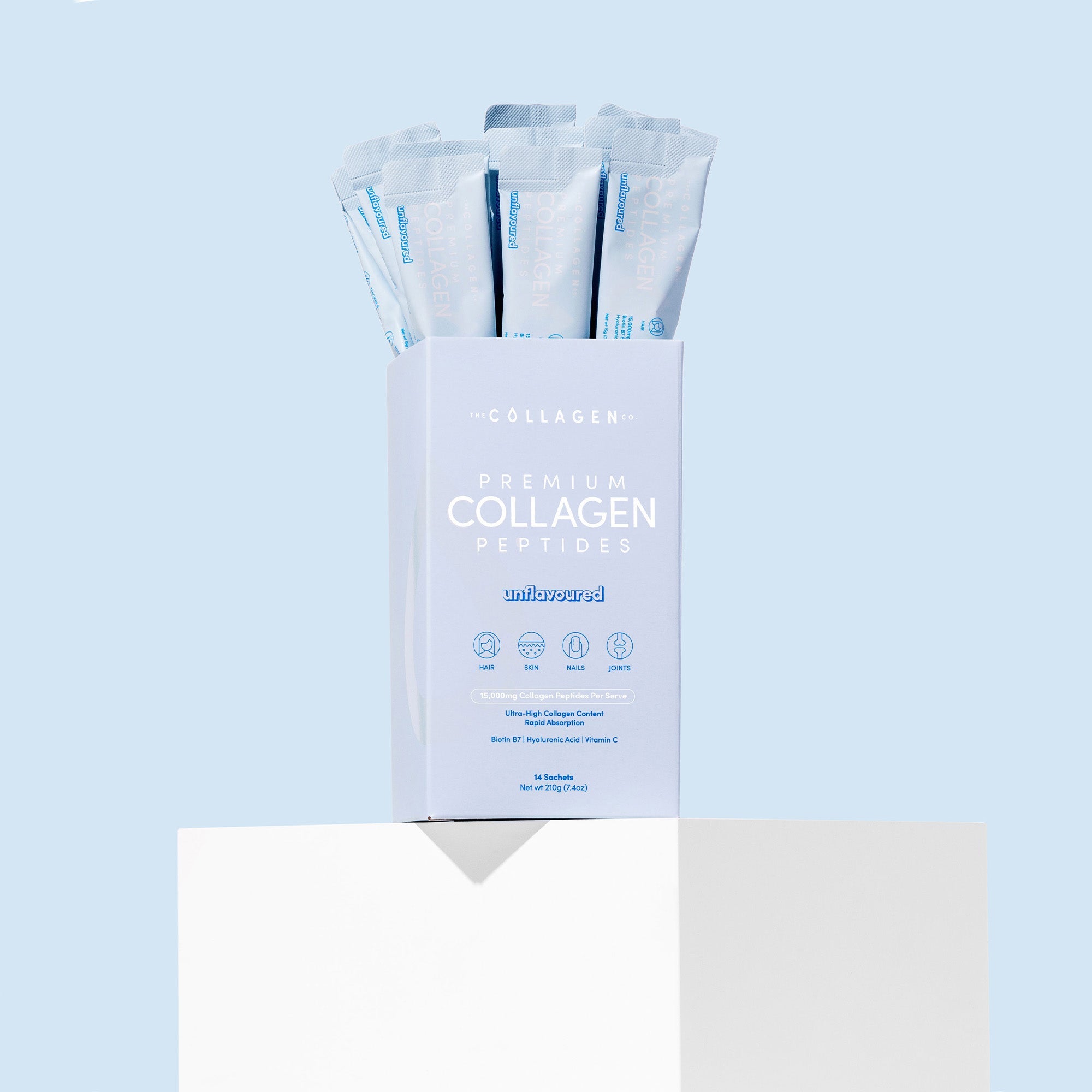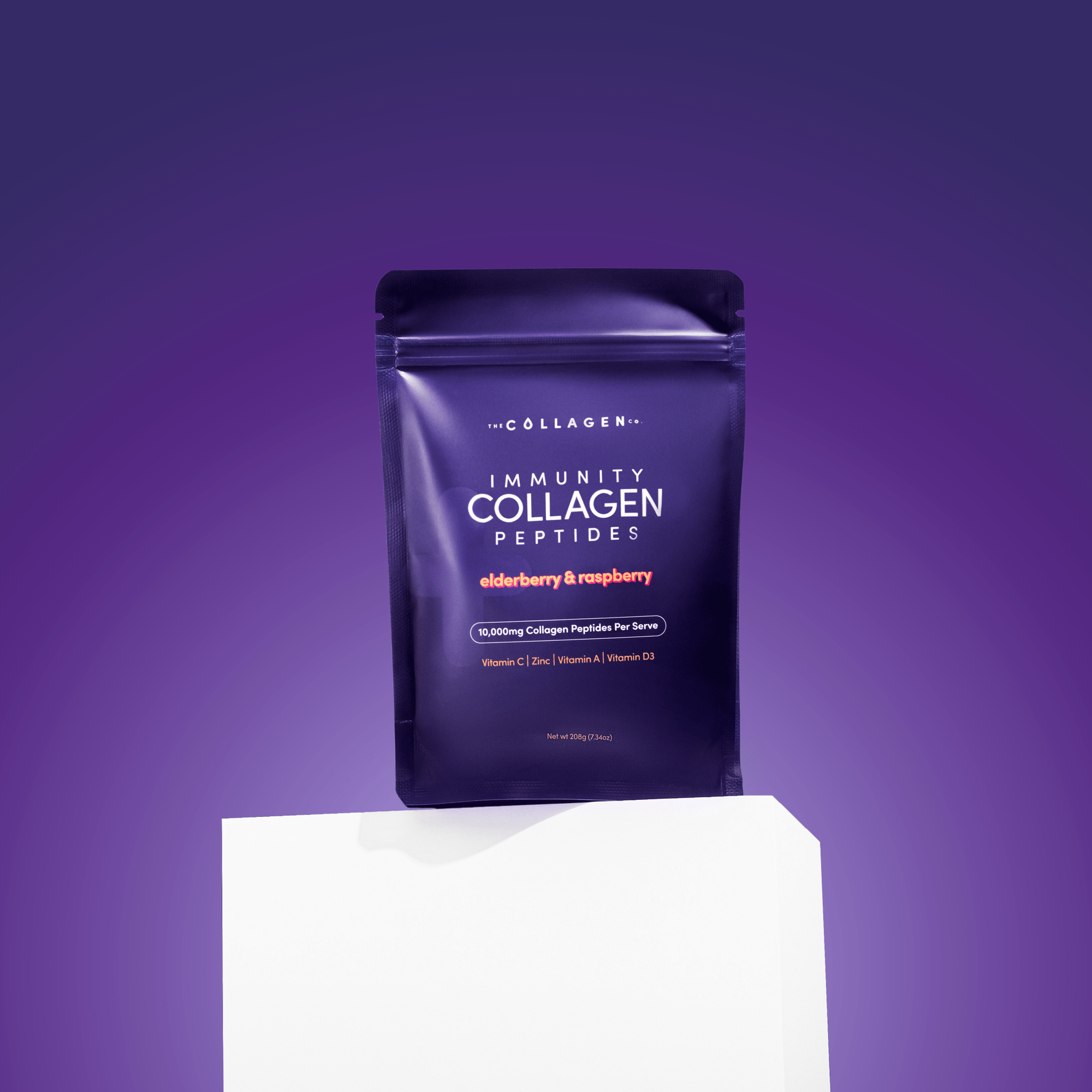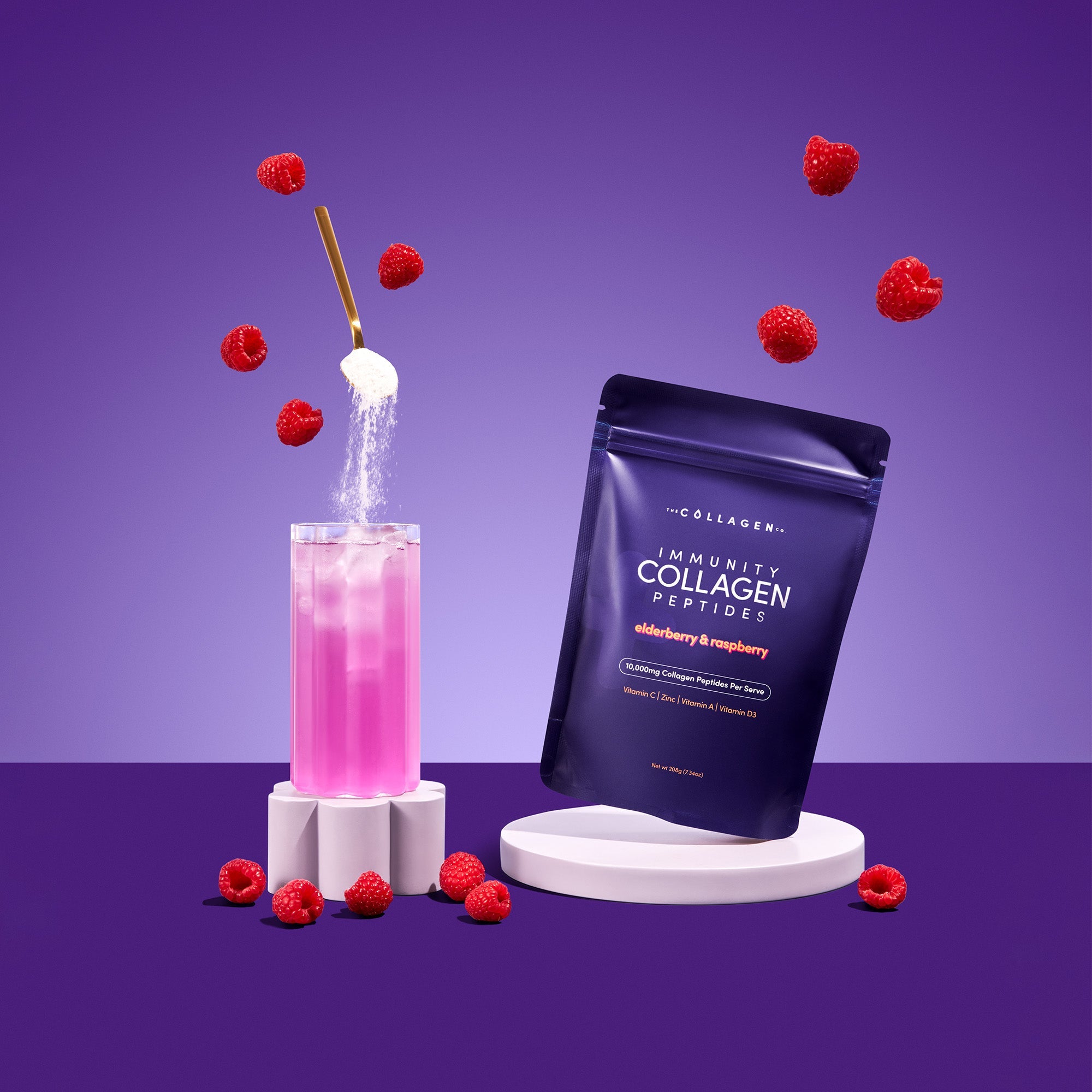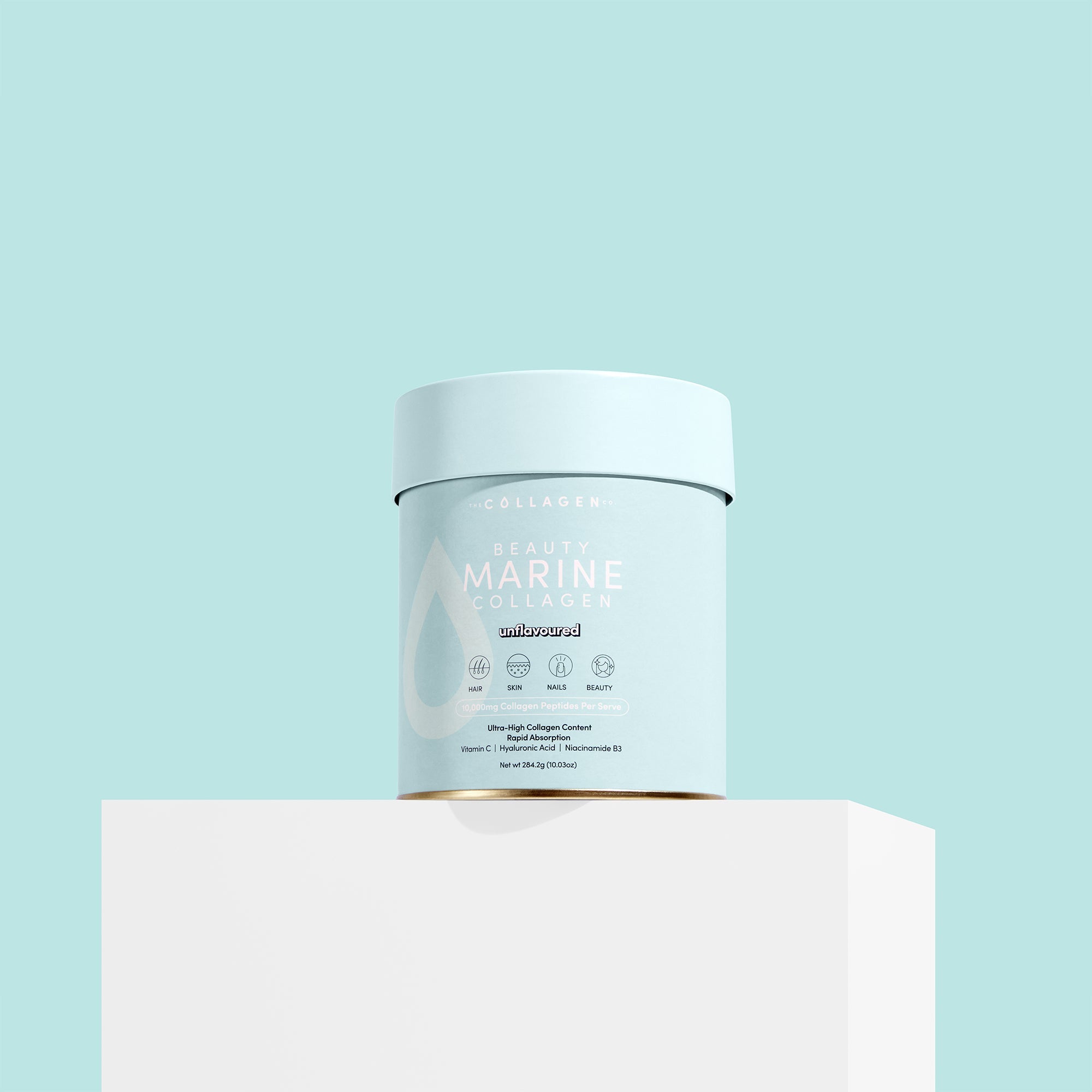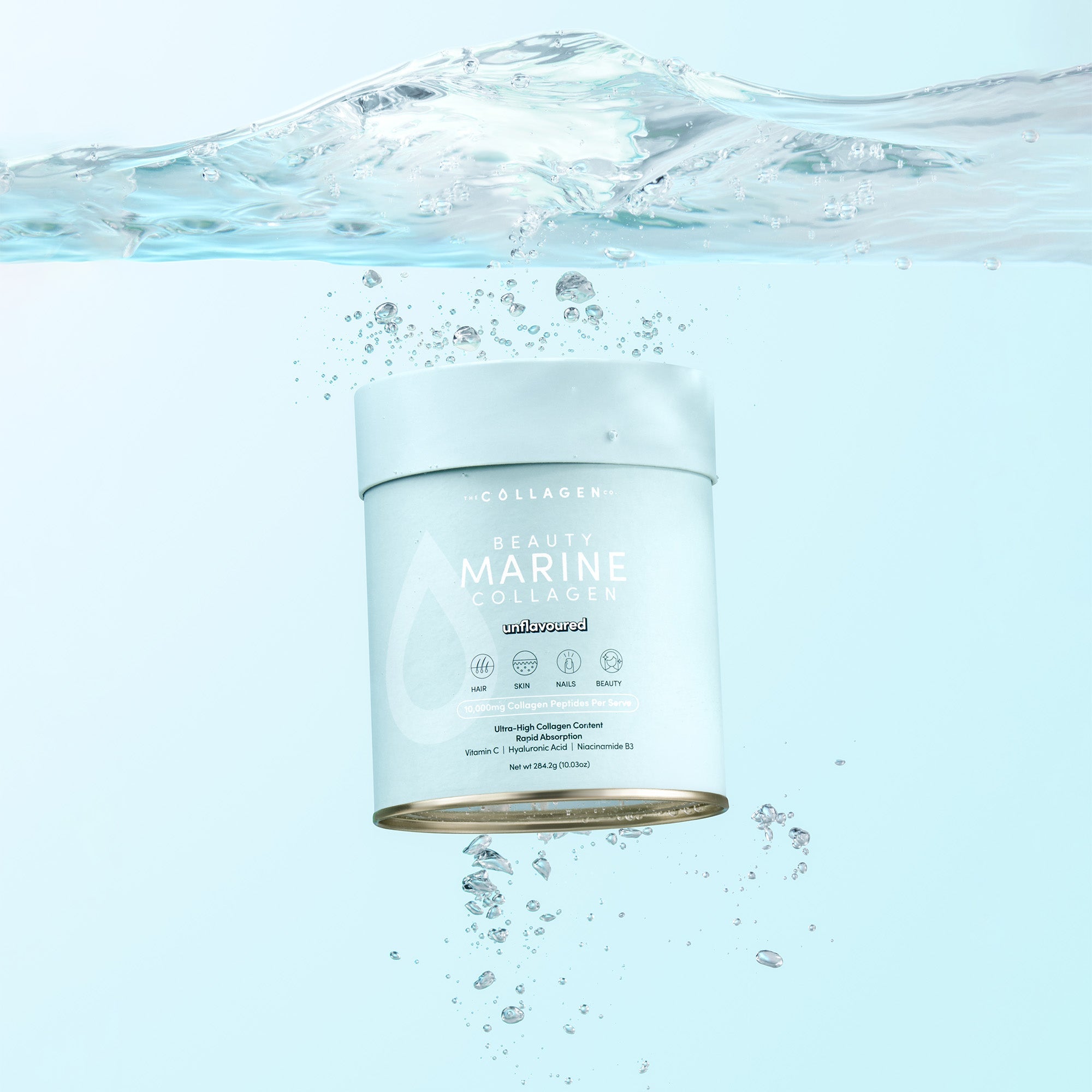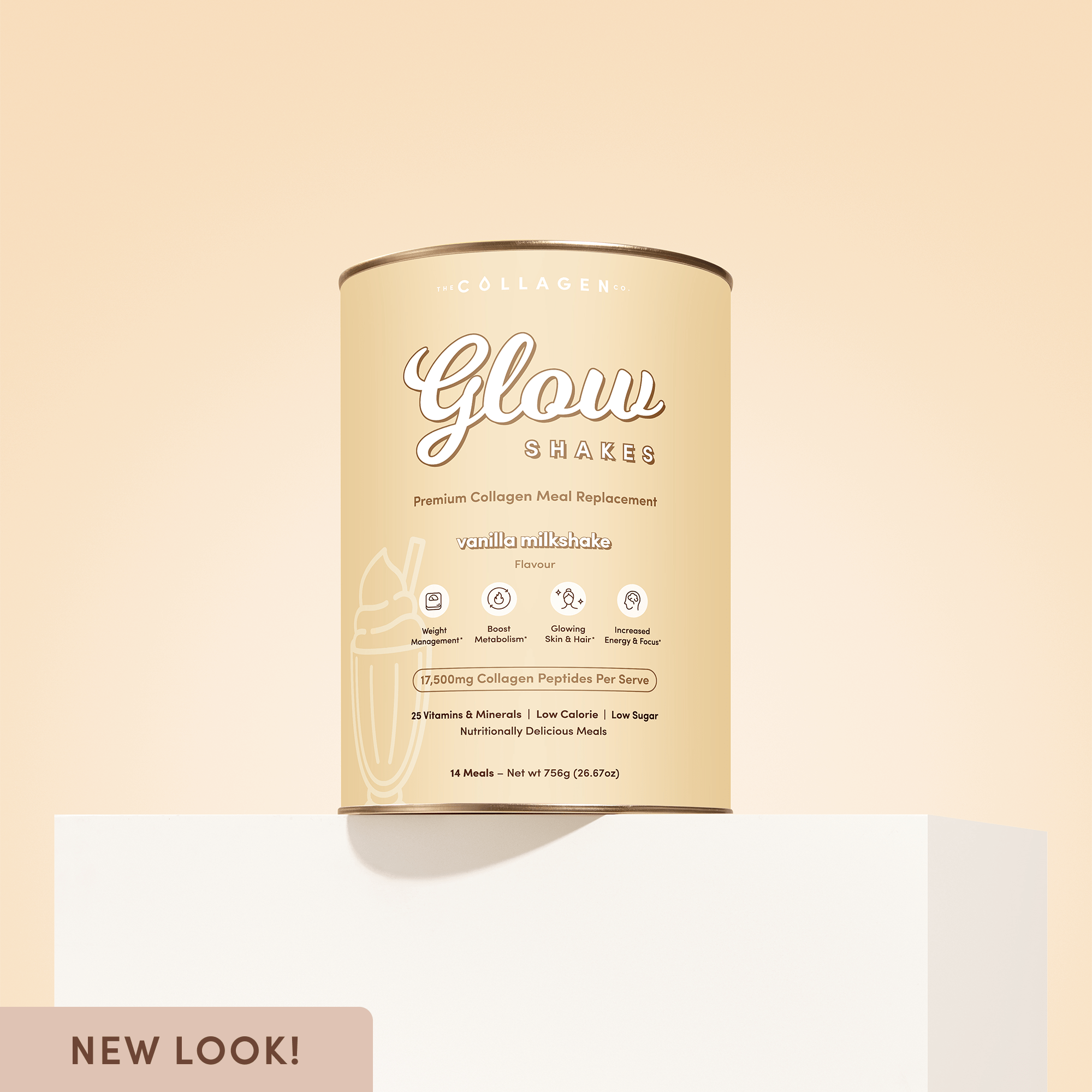Bovine Collagen vs Marine Collagen: Which Is Better?
Posted June 2024

“Bovine collagen peptides”. “Marine collagen peptides”.
You look back and forth between the 2 bottles in your hand, scrutinizing each’s nutritional info, from calorie count to grams of collagen peptides to amino acid profile per serving, to understand their differences. *1 minute of intense concentration later* Nothing.
Back to square one. Having made zero progress in determining which you should buy, randomly picking one from the shelves becomes tempting. But you shouldn’t.
Because this article is about to tell you why your choice ultimately comes down to personal preferences. That’s right: as it turns out, despite their many differences, bovine and marine collagen peptides are equally effective.
Continue reading to find out why.
Bovine collagen vs marine collagen
Let’s start with the most apparent difference between the 2: where the collagen comes from.
Source
Bovines (subfamily Bovinae) comprise 10 types of medium to large-sized mammals with hooves, including yak, antelope, bison, water buffalo, and cows.
That said, bovine collagen peptides come primarily from cows. Cow bones and/or other cattle byproducts are boiled in water to get a collagen-rich “broth”, which is then clarified, dried, and powdered to form the supplement you’re familiar with.
While “marine” encompasses practically any life form found in the sea, marine collagen peptides are derived primarily from fish.
Fish scales, skin, and bones are boiled in water, and … you know how the rest goes.
Types of collagen
Because bovine collagen peptides come from cows and marine collagen peptides come from fish, the types of collagen they provide differ.
Struggling to make sense of that statement?
You’re probably missing some key background information; don’t worry, let’s fix it right now. Collagen is the primary structural protein of the skin, tendons, ligaments, cartilage, bone, and connective tissue. Researchers have identified 29 distinct kinds of collagen.
But the most common are types I through V, with type I comprising over 90% of the collagen in the human body. Here’s where you can find each type:
So, a natural question to ask following that would be, “Bovine collagen vs marine collagen: which has a ‘better’ collagen profile?”
Technically speaking (there’s a good reason for this strange, non-committal wording, but more on that later), it would be bovine collagen — it consists of types I, II, and III, while marine collagen only yields type I.
Absorbability
Woah. If the “bovine collagen vs marine collagen” showdown were an actual boxing match, the former’s 3x increased variety in collagen types (collagen types I, II, and III) might have seemed like a knockout blow … but not so fast.
Despite their unimpressive collagen profile, marine collagen has an advantage over bovine collagen.
Bioavailability.
More specifically, quoting a 2022 study published in Engineered Regeneration, “The collagens made from fish … are more bioavailable and absorb up to 1.5 times better than bovine … collagen. Their small particle size and low molecular weight provide more rapid bloodstream circulation.”
Which is better?
A recap of where we’re at for the whole bovine collagen vs marine collagen discussion:
- Bovine collagen peptides provide types I, II, and III, compared to marine collagen’s type I — +1 point to bovine collagen
- Marine collagen peptides are thought to be absorbed up to 1.5 times better than bovine collagen — +1 point to marine collagen
Uh-oh. Looks like we’ve landed ourselves in a quandary where we’d either have to forsake a higher number of collagen types for increased bioavailability or vice versa.
… or have we?
Interestingly, even though marine collagen peptides provide only type I collagen, there’s evidence that it also benefits:
- Joint health (associated with type II collagen)
- Lean body mass (associated with type III collagen)
- Cell and hair health (associated with type V collagen)
Just look at Carly’s experience with our Beauty Marine Collagen Powder:
The same goes for bovine collagen peptides. Although they lack types IV and V collagen, research links them to improved tissue and hair health.
And here’s Annelise’s 4-week hair transformation on our Premium Collagen Peptides (bovine):
The question you’re likely grappling with is probably, “Why?”
Researchers aren’t sure themselves. However, it’s likely to come down to the fact that the human body is an incredibly complex system that can “adapt” different types of collagens to its specific needs.
Think this means marine collagen wins in this whole bovine collagen vs marine collagen debate because it’s “more bioavailable”? Yeah, you’ll have to rethink that.
The truth is that size is the ultimate determinant of collagen peptides’ bioavailability — low-molecular-weight peptides boast a higher digestibility rate, contributing to increased absorption, distribution, and use in the human body.
Marine collagen peptides available on the market are usually hydrolyzed (i.e., “cut” into tiny amino acid blocks) to a greater degree than their bovine counterparts.
This explains their supposed superior bioactivity.
So, unsurprisingly, when bovine collagen gets hydrolyzed to the same molecular weight as marine collagen, there’s actually no difference in bioavailability and, in turn, functionality between them.
Choosing between bovine and marine collagen peptides
Now, do you finally understand why bovine and marine collagen peptides are equally effective?
So, how do you decide between them both now? Simply consider your dietary preferences or restrictions. Can you eat beef? And if you can, would you prefer not to eat beef?
The same goes for fish. Have an honest conversation with yourself, and you’ll get an answer to the question of which you should choose when it comes to bovine collagen vs marine collagen.
The specific bovine or marine collagen peptides you choose matters
Regardless of which (i.e., bovine or marine collagen peptides) you choose, to maximize efficacy, you should go for a supplement that’s:
Just so you know, yes, The Collagen Co’s Premium Collagen Peptides and Beauty Marine Collagen Powder meet all those requirements. They’re just 2-3 kDa in molecular weight, contain 10 (marine) to 15 g (bovine) of peptides per serving, and downright scrumptious. Tick, tick, tick.

